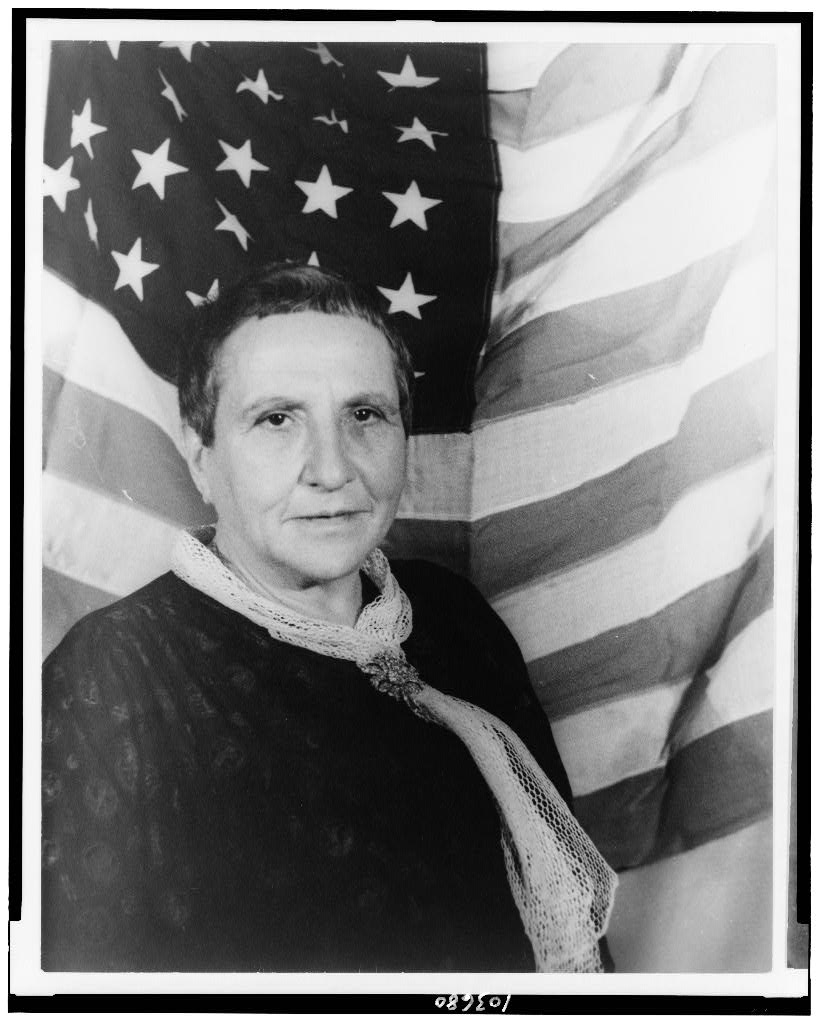
A friend passes these on:
“And what does a comma do, a comma does nothing but make easy a thing that if you like it enough is easy enough without the comma. A long complicated sentence should force itself upon you, make you know yourself knowing it and the comma, well at the most a comma is a poor period that lets you stop and take a breath but if you want to take a breath you ought to know yourself that you want to take a breath. It is not like stopping altogether has something to do with going on, but taking a breath well you are always taking a breath and why emphasize one breath rather than another breath. Anyway that is the way I felt about it and I felt that about it very very strongly. And so I almost never used a comma. The longer, the more complicated the sentence the greater the number of the same kinds of words I had following one after another, the more the very more I had of them the more I felt the passionate need of their taking care of themselves by themselves and not helping them, and thereby enfeebling them by putting in a comma.
“So that is the way I felt about punctuation in prose, in poetry it is a little different but more so …”
— Gertrude Stein
And Oscar Wilde has this to say on the subject:
“I have spent most of the day putting in a comma and the rest of the day taking it out.”
